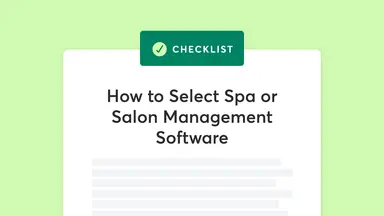
The Top 8 Most Common Mistakes When Switching Enterprise Software
January 12, 2022
Switching to new software can be both an exciting and difficult decision to make. To help make this process easier, we’ve listed eight common mistakes made during the switch and advice on how to avoid them.
1. Rushing to make a call
At times, companies don’t make the decision to switch software until they feel pressured. So, they feel rushed into finding a replacement. In this process, it’s important to take your time.
It’s normal to want to speed through this transition, but we recommend you give your teams the time they need to do their due diligence, explore their options, and see what might be the best fit for your team and clients This might be a few weeks or even a few months.
There are a lot of moving parts you’ll need to consider, so let’s keep going
2. Not including various teams in your decision
If a department is using this software, they need to be a part of your decision. A tool you’re considering might be a great fit for the marketing department but terrible for the sales team. Empower your various departments to share what their needs are.
Your team should also have the opportunity to test drive the software you’re considering switching to, which brings us to our next point.
3. Relying only on a demo and not asking for a pilot
Most companies will happily offer you a demo, and that’s always helpful. However, a demo is not going to show you everything you need to see, It isn’t possible to pack that much information into a single demonstration.
So, you need to pilot the software yourself.
Ask your rep for at least two months to try out the software. If your enterprise business has multiple locations, pilot the software for at least three of them.
Additionally, don’t limit this pilot to only new locations. Ask some of your existing locations to try it, too. The reason for this is that these existing locations already have data, and you need to see what data migration would entail.
4. Failing to quantify and closely measure your KPIs during the pilot
This is your chance to get a feel for new software. However, you need to be laser-focused on setting and tracking quantifiable KPIs.
This is the only way you’re going to determine if the software will truly meet your needs.
5. Not asking your customers for feedback
You probably already know that you need to support your clients during this pilot since it’s going to be a transition for them, as well. But don’t stop there.
During your pilot, it’s crucial that you’re paying close attention to what your clients are saying. Here are some questions you might want to ask them:
- Does the software feel intuitive?
- How different does it feel from what you’re currently using?
- Are they having a positive experience on both desktop and mobile?
- Are they able to get what they need as quickly as possible, with as few clicks as possible?
6. Not asking your teams for feedback
Yes, you want to make your clients happy. But you also want to make sure that your team who will use the software on a regular basis are happy, too.
Here are a couple of things you might want to ask them:
- Does this software help you work efficiently and productively?
- Are you able to track the KPIs that matter to you?
Remember, everyone needs to be able to share their thoughts, from sales reps to the executive team.
7. Forgetting to get future features on paper
Here’s something we’ve heard from current and former customers quite a bit.
When switching to new software, they’ll be told that certain features that are important to them are already in progress and coming soon.
And then they never hear of it again.
If your enterprise software company tells you they’re already working on a feature, get an estimated timeline of completion and ask them to confirm on paper.
That way, if they end up not delivering, you have ground to stand on.
8. Not passing the contract to your legal team
This is crucial because missing even the tiniest detail can be detrimental. Leave the legalese to a lawyer, and have them read all the fine print.
Something we commonly see? Customers don’t find out until they stop using software that they’re not allowed to export their own data. This is just one of many important details that you need a lawyer looking out for in your contract.
We know it’s a lot to consider, but you don’t have to make the switch alone. If you’re in the market for new software to manage your enterprise business, Mindbody can help. Ask us about a demo and let’s talk more about your needs.



